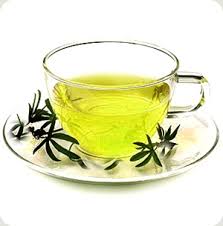Professional athletes understand the importantace of drinking the right kind of ionized alkaline water - and you should care too

What an athlete consumes before, during and after exercise is absoluately vital for comfort and performance. While eating soon before exercise doesn't provide the bulk of the fuel needed for the activity, it can prevent the distracting symptoms of hunger during exercise. The major source of fuel for active muscles is the carbohydrate which gets stored in the muscles as glycogen in the days before exercise. This is one reason that the post-exercise meal is critical to recovery and being ready for the next exercise session.
When To Eat
Exercising on a full stomach is not ideal. Food that remains in your stomach during an event may cause stomach upset, nausea, and cramping. To make sure you have enough energy, without causing stomach discomfort, you should allow a meal to fully digest before the start of the event. This generally takes 1 to 4 hours, depending upon what and how much you've eaten. Everyone is a bit different, and you should experiment prior to workouts to determine what works best for you.
If you have an early morning race or workout, it's best to get up early enough to eat your pre-exercise meal. If not, you should try to eat or drink something easily digestible about 20 to 30 minutes before the event. The closer you are to the time of your event, the less you should eat. You can have a liquid meal closer to your event rather than a solid meal because your stomach digests liquids faster.
What To Eat
Because glucose is the preferred energy source for most exercise, a pre-exercise meal should include foods that are high in carbohydrates and easy to digest. This includes foods such as pasta, fruits, breads, energy bars and water.
Lactic acid gets secreted during exercise which makes your muscles stiff. Lactic acid can make a happy performed downright miserable when it accumulates. This inhibits performance at the gym and in athletic competition. Have you ever had a lactic acid crisis right after a hard workout? Anyone who can answer YES! understands why this is something to be avoided at all costs. I sense someone just nodded. The good news is that lactic acid accumulation can be avoided, easily and economically by drinking Alkaline ionized water. Alkaline water water should be consumed by athletes - and in fact by a growing number of professional athletes is being consumed during exercise because, among other benefits, it rids the body of that often pain inducing lactic acid. Why don't Gyms have an in house alkaline water filtration system? They should. Obviously we recommended gyms to have water ionizers (not just plain old filtered water) installed for their members. It's a win-win situation. And we all want to win and keep winning.
For more information on alkaline ionized water, please visit http://www.chansonwater.com/
